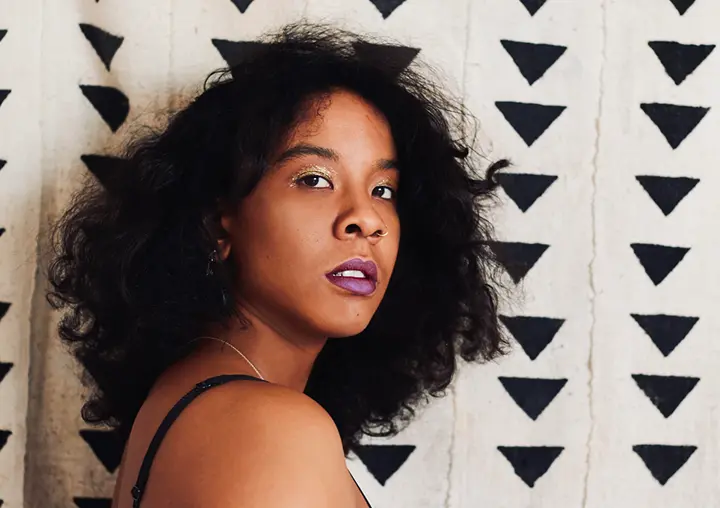
Eva Woolridge
"As a young photographer, I have worked in the industry for almost a decade now, and this was a moment where I finally received the recognition for all of my work and on a much larger platform. To be one of the three recipients of the first Leica Women Foto Project was extremely rewarding. I have evolved not only as a photographer, but as a businesswoman and public speaker that aligns with my social activism. Since winning the award, opportunities continue to flow toward me with abundance."
Q. Since the announcement of our 2019 Leica Women Foto Project awardees, how has that impacted your photographic journey so far?
A. Winning the award was an extremely affirming experience for me. As a young photographer, I have worked in the industry for almost a decade now, and this was a moment where I finally received the recognition for all of my work and on a much larger platform. To be one of the three recipients of the first Leica Women Foto Project was extremely rewarding. I have evolved not only as a photographer, but as a businesswoman and public speaker that aligns with my social activism. Since winning the award, opportunities continue to flow toward me with abundance. I developed my own print making business, cutting out the middleman and printing my own pieces to sell. I spoke at Schomburg Research Center in Harlem, presented a TedxTalk, gained a mentor, published in an international photographer magazine, featured on countless podcasts regarding my professional experience as a photographer, and currently leading my own workshops, one being with Leica. The Leica team has been extremely present for me every step in the way, and the program leaders did their part to ensure I milked this opportunity for everything that it could offer. The program's success depends on the success of the awardees, and I am appreciative of how flexible the team is to provide opportunities.
Q. Describe how you use the Leica Q2 as a tool for your work.
A. I am not a tech-focused photographer. I never really cared with how expensive a camera was or acquiring top grade equipment. I only needed a camera as the vehicle to best share my story. And when I received the Leica Q2, my game had changed. It is such an accessible, sturdy and dependable camera. I completely favor it for my photojournalism work, as it captures moments beautifully and quickly. I truly think my work has leveled up from the Leica Q2.
Q. How have you used the funds to support your photographic series?
A. I used the Leica funds to reinvest in my career. My first expense was taking the Ralph Gibson Book Making Workshop in Boston. It was the best grand I've ever spent because not only did it teach me to create a photography book, but for three days I interacted with one of the most successful photographers still working today. When the quarantine began, I felt inclined to find a new source of income, and so after over a year of delay I decided to buy a professional photo printer. I thought that with the award I would have completed the year with a book. Instead, I started a new journey of financial independence and creative freedom.
Q. What advice do you have for photographers who are in the process (or are interested) of developing their own series or personal project?
A. I advise prospective photographers to submit work they are truly passionate about. Do not create and submit work you THINK will stand out to the judges. My series Size of a Grapefruit was less of a submission to impress, but instead an effort to spotlight a real social issue affecting Black women. It came from a personal experience, which led to more passion when creating the series. My goal was to heal, which is why I think it was so relatable for the judges. Source inspiration from your own experiences, it will not only be more successful and authentic, but it will also be more fulfilling for you as an artist.
Q. What is your vision for the Leica Women Foto Project?
A. I want the next winners to acquire the same efforts toward mentorship, and fully taking the advantages given to you. It could be easy for a winner to feel paralyzed from this immediate recognition. How will they take advantage of such a big opportunity? I want winners to be flexible with changes that could occur (i.e an international pandemic) , and how those changes don't have to stop them from benefiting from this experience. I hope that this program can develop true mentorship, like it had for me with one of the judges, and continue to provide space for winners to step into developing their own programming if the opportunity develops, like it had for me.